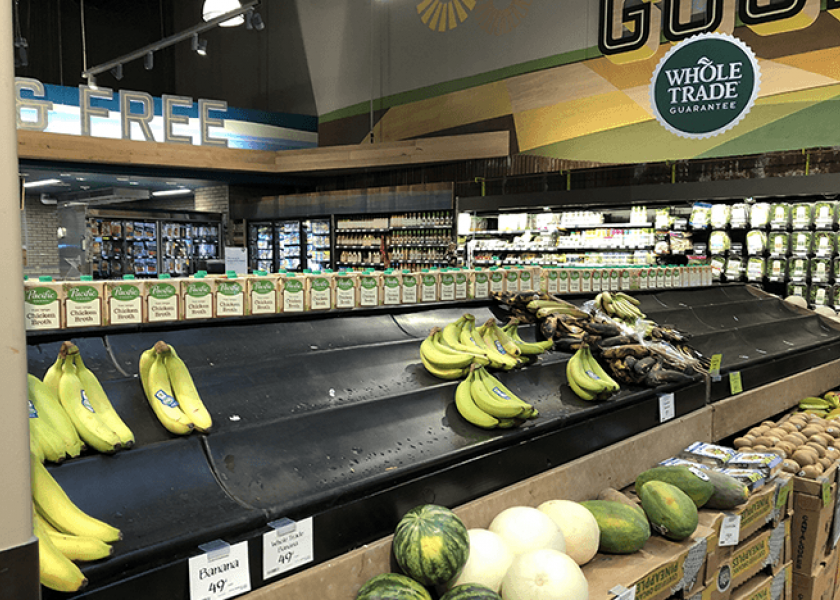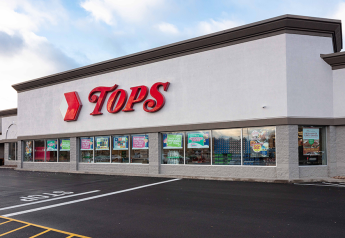Eight grower-shippers detail COVID-19 effect on business, supplies

Highlights
- Potato supplies may be tight going forward given the heightened demand for the item due to its longer shelf life.
- Companies are looking to protect workers in the fields with measures like smaller harvesting crews and the addition of more wash stations so people don't have to congregate in line.
- One question looking ahead is whether shoppers will respond to traditional promotions and merchandising given the changes in shopping patterns due to COVID-19.
The coronavirus COVID-19 and efforts to slow its spread have had a significant effect on the produce industry, forcing suppliers to adjust in a number of ways.
Steve Smith, president of Pleasant Grove, Utah-based National Onion Inc., said the sudden dearth of foodservice sales has had the biggest effect of his business.
“Without the restaurants being 100%, we are reduced to selling retail only,” Smith said.
He noted the sufficiency of the onion supply will depend on how retail demand trends.
As far as storage onions and Northwest supply, “there are still quite a few left to run,” he said. “Without foodservice orders it will go slow for these onions.”
There are still onions coming in from the Tampico region of Mexico, and Texas onions are just starting and look like a good crop, Smith said. California and Arizona start up in late April, Southwest Texas and Northern Mexico in early May, and New Mexico in late May — along with Vidalia onions, which can be packed starting April 16.
“For April usage hopefully all the storage onions will be consumed,” Smith said. “With so many summer areas coming in around the same time, it would be very helpful if the foodservice sector starts buying again by May 1.”
Troy Bland, chief operating officer for Bland Farms, Glennville, Ga., said April 2 the farm has received its H-2A workers needed to harvest the Vidalia onion crop. However, there is still concern about keeping workers and staff healthy in view of the COVID-19 pandemic.
“We actually are taking steps to try to isolate (H-2A workers) from the community, and the community from them,” Bland said, adding that the farm is providing the workers more food and other needs than in a typical year.
In addition, Bland Farms is taking the temperatures of all employees and field labor.
“We are following the CDC guidelines and we have our own guidelines that workers adhere to,” Bland said. “Right now we are just trying to get through.”
Potatoes
Eric Halverson, CEO of Grand Forks, N.D.-based Black Gold Farms, described demand has dipped some from the crazy first weeks of the crisis, but it remains strong and “very volatile.”
“We have been getting creative to solve some of the supply chain challenges that have bubbled up over the last two weeks,” Halverson said. “Our team has been working extra hours to make sure and satisfy our customers. We have also been spending a significant amount of time putting together protocols and backup plans to deal with any type of issue that could arise in the event COVID-19 directly impacts our team.”
Heidi Alsum-Randall, chief operating officer for production and sales for Friesland, Wis.-based Alsum Farms & Produce, described demand March 12-27 as similar to Thanksgiving.
“While packing five days a week and nearly around the clock, we could not keep up with the demand that our retail customers had for russet, red and gold potatoes,” Alsum-Randall said. “March to the end of May is a busy time of year, when a majority of U.S. potato farmers are planting. Due to some of the uncertainties with COVID-19, some of the 2020 crop that would normally be under contract has not been contracted at this time.
"From our farm to our packing shed to our deliveries, we are continually trying to adapt our practices to ensure the safety and well-being of our employees and customers and safety in handling our product," Alsum-Randall said.
Rachel Atkinson-Leach, category and brand manager of Bancroft, Wis.-based RPE, also noted the dramatic increase in demand for the better part of March.
“Our business volume is up nearly 30% across all locations over the last three weeks compared to the previous weekly average,” Atkinson-Leach said, noting that red and yellow potatoes have been seeing even more pronounced gains than russet potatoes.
Read more from Dole, Driscoll's and HLB Specialties on the business effects of COVID-19 and their outlook on supply in the second part of this article.







